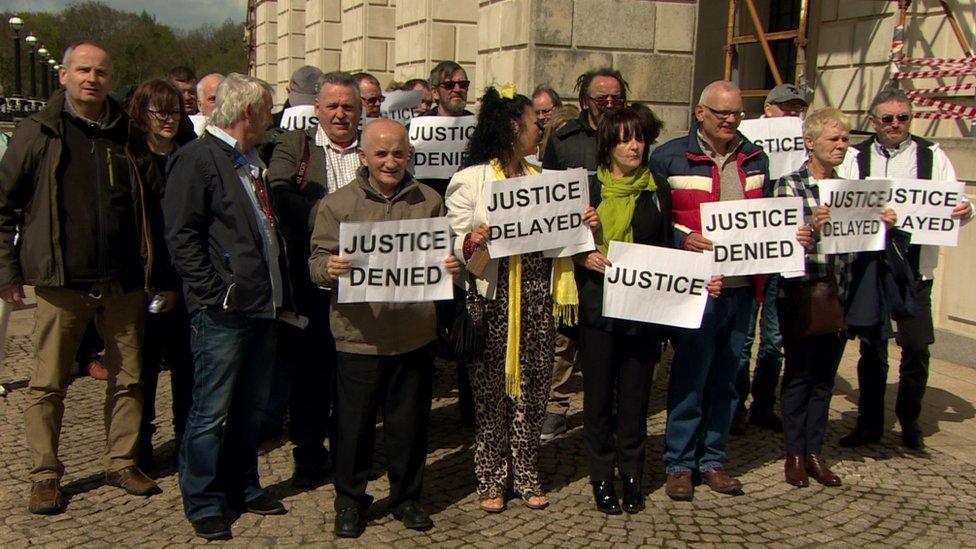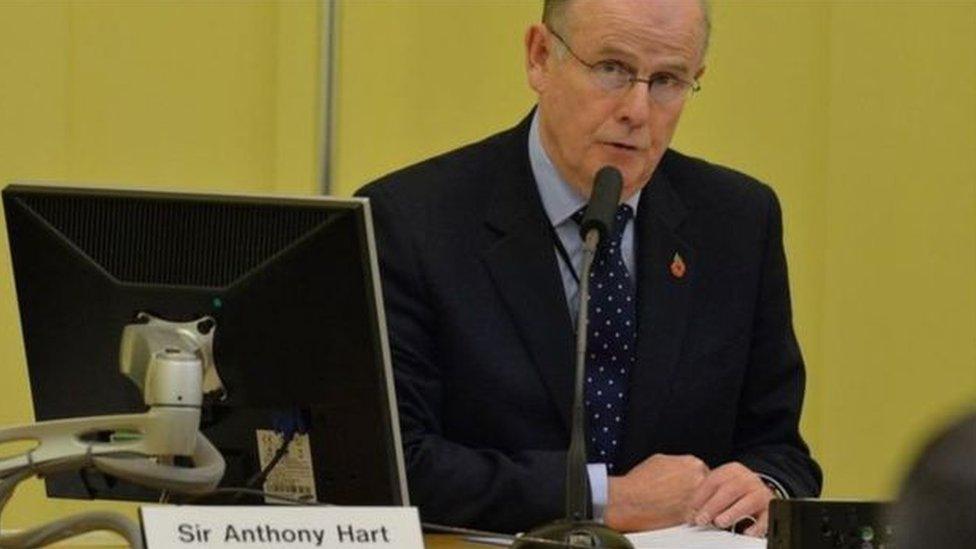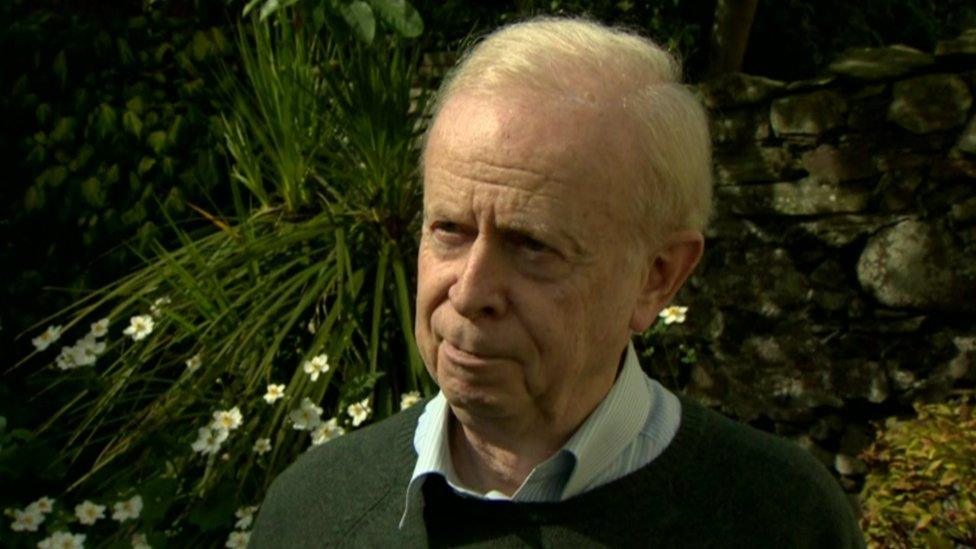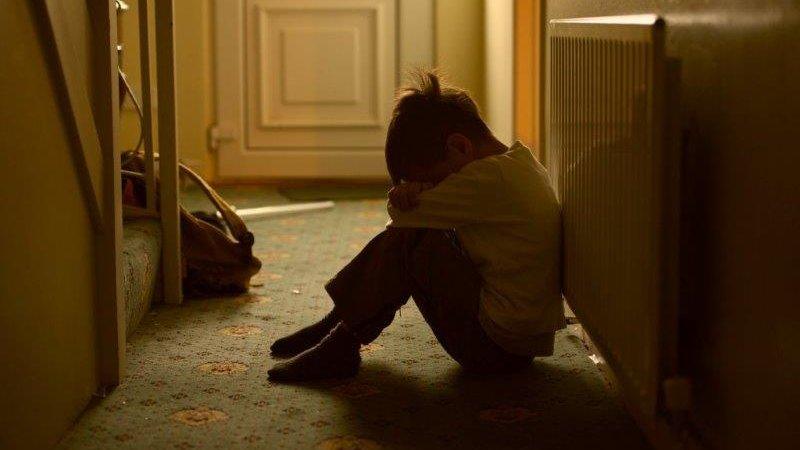Compensation for HIA victims 'should be accelerated'
- Published

Campaigners have been calling for compensation to be implemented since early 2017
Legislation to provide compensation to victims of historical institutional abuse should be given accelerated passage, peers have said.
On Monday, the House of Lords debated a bill to set up a redress board.
Victims have lobbied for compensation since the Historical Institutional Abuse Inquiry (HIA) ended in 2017.
Peers have said the new laws should be rushed through Parliament before it would be dissolved for a possible election.
Northern Ireland Office minister Lord Duncan of Springbank said the victims of historical abuse had been "left hanging" for too long.
He promised to move forward as swiftly as possible with the Historical Institutional Abuse (Northern Ireland) Bill to avoid any parliamentary "logjam" ahead of a possible general election in December.
The bill would set up a redress board to administer a compensation scheme, and also aims to create a statutory commissioner to advocate for survivors of institutional childhood abuse.

Sir Anthony Hart died before his recommendations were acted upon
The inquiry, chaired by the late Sir Anthony Hart, investigated historical allegations of child abuse in residential institutions run by religious, charitable and state organisations.
It examined 22 institutions and its remit covered a 73-year period ranging from 1995 back to the foundation of Northern Ireland.
The HIA Inquiry's final report in January 2017 recommended that all survivors of institutional abuse receive tax-free, lump sum payments ranging from £7,500 to £100,000.
However, it was published just a few days after the collapse of Northern Ireland's devolved government, and no ministers were in post to set up the redress scheme.
In the absence of devolution, victims and survivors have lobbied successive secretaries of state to implement Sir Anthony's recommendations.
Lord Duncan said the impasse had been acutely felt by the victims and survivors of historical institutional abuse who had been "left hanging for seven long years" after an inquiry in 2012.
"This wait must now come to an end," he told the Lords in second reading debate on the bill.

Lord Empey said the bill should not be lost in the "wash-up" before an election
Former Northern Ireland secretary Lord Hain welcomed the bill, but warned it would be tragic for the abuse victims if the legislation stalled in a "parliamentary log-jam" before an election.
"I have no desire to see this carried over. I would much rather this be done as quickly as we possibly can," said Lord Duncan.
Former Ulster Unionist leader Lord Empey warned that for the bill to be lost in the "wash-up" before an election would deal a "cruel card" to the victims.
Peers gave the bill an unopposed second reading - but it still has to undergo further detailed scrutiny in the Lords and the Commons before it can become law.
- Published5 September 2019

- Published23 August 2019

- Published20 January 2017
